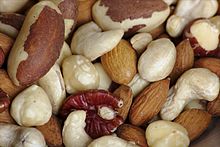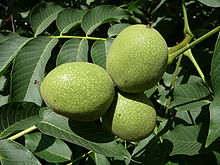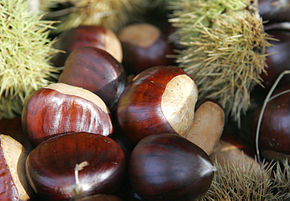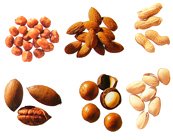Top 10 Evidence-Based Health Benefits of Coconut Oil
Coconut oil is one of the few foods that can be classified as a "superfood." Its unique combination of fatty acids can have positive effects on your health. This includes fat loss, better brain function and various other impressive benefits. Here are the top 10 evidence-based health benefits of coconut oil.

The Top 9 Nuts to Eat for Better Health
Nuts are healthy snack options. Though they’re usually high in fat, the fat they contain is a healthy type. They're also good sources of fiber and protein. Many studies have shown that nuts provide various health benefits — especially in regards to reducing heart disease risk factors. Here are 9 impressive nuts and their health benefits

Walnut
A walnut is the nut of any tree of the genus Juglans (Family Juglandaceae), particularly the Persian or English walnut, Juglans regia. Technically a walnut is the seed of a drupe or drupaceous nut and thus not a true botanical nut. It is used for food after being processed, while green for pickled walnuts or after full ripening for its nutmeat. Nutmeat of the eastern black walnut from the Juglans nigra is less commercially available, as are butternut nutmeats from Juglans cinerea. The walnut is nutrient-dense with protein and essential fatty acids.

Nut (fruit)
A nut is a fruit composed of an inedible hard shell and a seed, which is generally edible. In general usage, a wide variety of dried seeds are called nuts, but in a botanical context "nut" implies that the shell does not open to release the seed (indehiscent). The translation of "nut" in certain languages frequently requires paraphrases, as the word is ambiguous.

Peanut
The peanut, also known as the groundnut,[2] goober, or monkey nut (UK), and taxonomically classified as Arachis hypogaea, is a legume crop grown mainly for its edible seeds. It is widely grown in the tropics and subtropics, being important to both small and large commercial producers. It is classified as both a grain legume[3] and, due to its high oil content, an oil crop.[4] World annual production of shelled peanuts was 44 million tonnes in 2016, led by China with 38% of the world total. Atypically among legume crop plants, peanut pods develop underground (geocarpy) rather than aboveground. With this characteristic in mind, the botanist Linnaeus named the species hypogaea, which means "under the earth."


